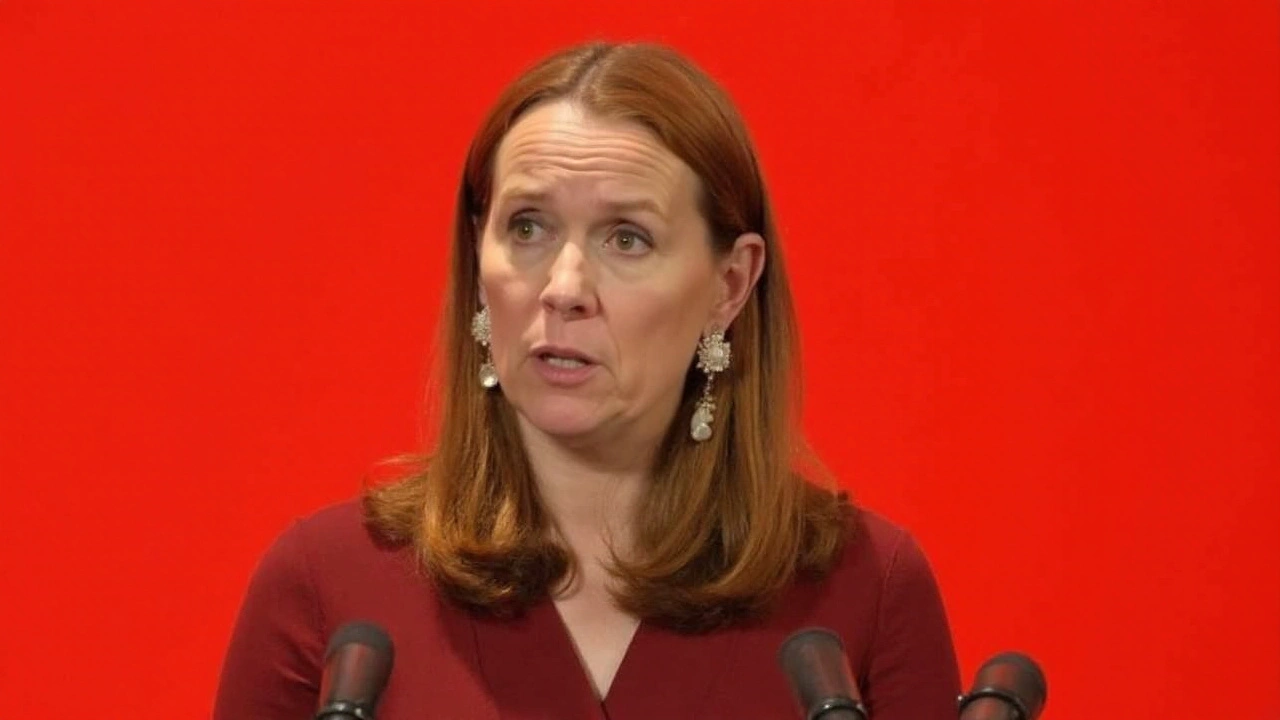Lucy Powell has moved to shield Angela Rayner from renewed scrutiny over the Deputy Prime Minister’s past financial affairs, praising her as a central figure in the government and swatting away critics as politically motivated. Her defence, delivered across recent broadcast appearances, quickly collided with a splash of ridicule from a widely shared satirical column that lampooned both her rhetoric and Labour’s confidence. It’s a telling clash: a senior minister trying to steady the message, and a cynical media mood eager to puncture it.
What triggered the defence
Rayner’s finances have been a recurring flashpoint since before the election. The long-running dispute centres on her past property arrangements and whether she owed tax on a sale made years before taking office. The row has been reheated in bursts, often fuelled by political opponents and fresh commentary rather than new evidence. Police and tax authorities examined complaints earlier this year and did not pursue further action, but the issue has lingered—less as a legal matter and more as a political one.
Powell, now a senior voice in the government, has tried to close it down. She has framed Rayner as an asset whose background and political punch resonate with voters well beyond Westminster. In doing so, she has pushed a broader message: that ministers are getting on with a packed legislative programme while opponents dwell on yesterday’s story.
The satirical column that set off the latest fuss did not buy that framing. It caricatured Powell’s tone as overblown and cast Labour’s self-belief as delusional, drawing laughs by exaggerating her TV manner and turning her praise of Rayner into a punchline. It was not a fact-check. It was a mood piece—sharp, snarky, and designed to sting.
That clash of tones—earnest defence versus eye-rolling mockery—gets to the heart of Labour’s communications challenge. Ministers want to project seriousness and delivery. Parts of the commentariat are primed to puncture anything that looks like swagger.
Here’s the immediate context that matters:
- Rayner’s finances have been investigated by the relevant authorities, which took no further action. The political argument, however, has not gone away.
- Powell’s defence doubles down on Rayner’s value to the government and tries to drag the conversation back to policy.
- The satirical pushback lands because it taps into a wider scepticism about how political leaders sell their achievements.

The bigger picture: policy delivery vs. public scepticism
Beyond the noise, the government is trying to push through what it calls an ambitious programme. Ministers point to early moves on employment rights, energy reform, planning and housebuilding, and standards in public life. Some of this is legislation already introduced; some is still being drafted. Either way, the sell is straightforward: deliver quickly, show results, and keep attention on concrete changes rather than rolling controversies.
Three strands underpin that strategy:
- Make work more secure and raise standards: ministers have trailed an employment rights package aimed at banning exploitative practices and strengthening basic protections, with an emphasis on enforcement so rules bite in the real world.
- Cut energy bills over time and speed the transition: proposals include a new public energy body to invest in grid upgrades and clean power, alongside planning reforms to get new generation and infrastructure built faster.
- Unblock housing and infrastructure: planning changes and targets are intended to accelerate building, particularly in areas with chronic shortages, while balancing local input and national need.
Supporters say this is the sort of workmanlike agenda voters asked for: fix the basics, be boring if necessary, and avoid the circus. Critics respond that delivery timelines are long, fiscal headroom is thin, and the communications feel slicker than the substance. The satire hitting Powell taps into that latter mood—if the pitch is “we’re competent, trust us,” any stumble or overstatement is instantly amplified.
It’s also why the Rayner saga lingers. Even after formal processes stop, opponents use unresolved perception—what did she declare, when, and how clearly?—to keep the story alive. Governments can’t control that. They can, however, narrow the oxygen supply by over-communicating the facts, publishing clear timelines, and letting the independent standards machinery front-load credibility.
On that front, the machinery exists. Ministers must update the register of interests. The Independent Adviser on Ministers’ Interests can probe and recommend remedies. Parliamentary committees can demand explanations. None of this is politically comfortable, but transparency rarely is. When governments try to swat away questions with only loyalty and adjectives, they invite the very mockery Powell encountered.
There’s a separate risk in style. Big, emphatic TV defences can look like strength to supporters and spin to everyone else. That’s not unique to Labour; every government ends up talking to two audiences at once—the base that wants fire, and the sceptics who want receipts. The better defences tend to be short, factual, and backed by documents people can understand without a lawyer.
Meanwhile, the wider economic and social backdrop pulls focus. Voters care about waiting lists, mortgage costs, rents, school places, crime, and energy bills. If a government can show small, visible wins on those fronts—more MRI scanners running weekends, a faster planning sign-off for a local housing project, a clear drop in energy connection times—their comms feels earned. If not, satire lands harder because it captures the gap between promise and experience.
What happens next with Rayner’s finances is predictable: more questions, probably few new facts, and periodic calls for fresh disclosures whenever a related story flares. Powell and colleagues have two levers. First, treat each flare-up as a chance to publish a clean, accessible summary of what’s already been examined and by whom. Second, put policy milestones in the same news cycle so the story doesn’t exist in a vacuum.
Opposition parties will keep pressing. Conservatives see an opening on standards and consistency, asking whether Labour holds itself to the same bar it set in opposition. Smaller parties will go further on ethics and transparency, because that lane suits them. The press will keep stress-testing the government’s tone. If ministers sound triumphant while services feel stuck, expect more of the kind of satire Powell just absorbed.
Strip away the noise and the job is simple, if not easy: resolve questions with documents, not adjectives; make policy progress measurable, not theoretical; admit misses early and explain course corrections. That’s how you lower the temperature on reputational stories and keep the focus where a governing party wants it—on delivery.
Powell’s staunch defence of the Deputy Prime Minister shows loyalty. The satire shows how little patience there is for triumphalism. The space in between will decide how the public judges both the messenger and the message.
 Sep, 7 2025
Sep, 7 2025
